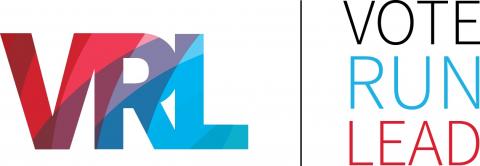
The Peer is the Political: Why The Cosmo Generation Needs To Lead
We’ve come a long way, ladies. Now it’s time to go farther, faster.
With Cosmopolitan.com’s recent announcement that it would increase its political coverage heading into election season and that it would launch #Cosmovotes, an initiative to get more young women to vote and endorse candidates who support women’s rights, we let out a resounding hell yeah.
Not only do young women want to read about politics and vote for our future leaders, they want to be our future leaders. And why shouldn’t they be?
Today, women occupying positions of power aren’t seen as extraordinary one-offs, but the norm. At the same time, technology is allowing communities to push for social and economic change in unprecedented ways and pop culture is having a you-go-girl moment. The convergence of these trends has the power to create a political tipping point that can reshape who leads America. By tapping into our peer networks to recruit more women to run, we can create the largest community of politically savvy women this country has ever seen and strengthen our democracy for generations to come.
In the last few years, the winds have been in favor of women’s leadership. Lean In, passed from colleague to colleague, brought the case for women’s leadership into focus within corporate America. Celebrities we know and love are embracing the word feminism with Taylor Swift, nudged along by Lena Dunham, and Beyoncé, telling all the single ladies they too can be card-carrying members of the F-tribe. And you know it’s a good sign when you've come so far as to be able to laugh at yourself (I'm talking about you Julia Louis-Dreyfus).
Unfortunately, outdated notions of what women want –and what they are capable of--still exist. Just look at Fox News contributor Guy Benson who believes that the women who read magazines like Cosmopolitan are only interested in fashion and shoes and not serious issues like the economy, equal pay, reproductive rights and health care.
The reality is that women are the majority of voters and they are already leaders in their families and communities. Yet, we still have work to do to show women that they can be in positions of political power as elected officials, government appointees, and party leaders. More women visible in positions of power raises the aspirations of girls, increases the number of women who “choose” to opt into politics, and helps men become more open to female candidates. Diversity of candidates is also critical because it helps our democracy thrive: women work across the aisle more frequently, broaden the political agenda, and engage constituents more. And, there is higher voter turnout when candidates are reflective of the country.
The piecemeal model of reaching a few hundred women at a time or the hopeful but short-sighted narrative of pinning “change” on one woman (think Elizabeth Warren) are simply not going to get us there. At that rate it will take us another 500 years for women to go from 20% to 50% of political officeholders—and we simply don’t have that kind of time.
We need a new approach, one that capitalizes on the promise of women’s leadership and leverages the growing power of our social networks. Increased access and interconnectivity to one another has created a collaborative economy with new models for sharing rides, turning our homes into hotels, and even lending out our garage tools. In our peer-to-peer economy, we even depend on our social networks to tell us which causes to donate to (Ice Bucket Challenge!) and which news stories are worthy of our time.
So it’s not farfetched to think about spending our peer capital – our friend power – on the political by asking a woman, or three, to run. Our social networks put real power in our hands – the power to encourage, the power to learn and the power to connect – at a scale that can finally move the dial on women's representation. Because of the democratizing role of technology, we no longer need the folks from on high to anoint us for leadership; instead, we can nominate a friend or start a global petition right from our desks.
VoteRunLead has created Invitation Nation, a peer-to-peer tool that allows anyone to invite a woman to run. With this social network based technology, recruitment will no longer be a stumbling block: Invitation Nation will create the largest database of female political talent so that no one can say that there aren’t enough women interested in running. By entering a zip code we can pull up tens of thousands of women trained and hungry to lead.
This is not an experiment. Our award-winning curriculum works—just look at some of our graduates, such as Kelly Westlund, who is running for Congress in Wisconsin, JoCasta Zamirippa, who is about to be a second term state legislator in Wisconsin and Jan Martin, who continues to make progress on the Colorado Springs City Council.
We have the ability to put what have been guarded resources around the process of running in front of hundreds of thousands of women. But we can’t do it alone. We are challenging every person in the nation to invite three women in their lives to run for political office before Election Day on November 4, 2014. Together we can create a tidal wave of women ready to make our country the thriving democracy we all know it can be.
##
(Originally posted on Medium)



The views and opinions expressed in this post are those of the author(s) and do not necessarily reflect those of MomsRising.org.
MomsRising.org strongly encourages our readers to post comments in response to blog posts. We value diversity of opinions and perspectives. Our goals for this space are to be educational, thought-provoking, and respectful. So we actively moderate comments and we reserve the right to edit or remove comments that undermine these goals. Thanks!